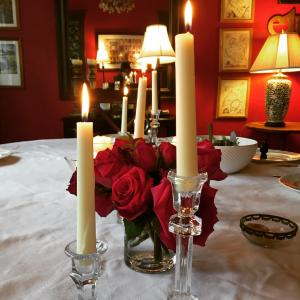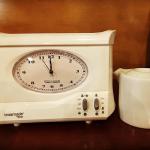The Bee has been reading my blog, apparently. Fifteen people tagged me with this gem, or sent it to me, with the joyous thrill of bringing two beloved friends together at last. It doesn’t matter that I didn’t say anything, at least not overtly, about Kon Mari-ing the Bible, which is one of those books you would certainly chuck for not sparking joy. It is that my bitter expression of the Christian life, materially enacted in my house and in the church, has found its perfect expression in this one brilliant Babylon Bee moment. My anxiety over applying the the Kon Mari method to books and to people and to the church is the sane clarion call to take yourself out of the business of knowing what happiness even is, and putting that task into the hands of Jesus. To say it less awkwardly, if you are the measure of what brings you ‘joy,’ you will ultimately never experience a speck of it. Not the real stuff anyway.
This review of the Netflix show is the most compelling yet, and I will probably break down and watch the wretched thing now. Although I would not be inclined to express my angst as politically as the reviewer, nor take offense over the frustrating reality of what she calls the ‘third shift’—that mental load carried by women day and night no matter what else they are doing—its taunting existence interests me in a personal way. I often wander around my beautiful house muttering, “How come I am the only person out of eight people who knows how to put anything away?” The house and all its clutter weighs on the back of my mind night and day. When I go out and I come in, when I lie down and I wake up, when I blog and when I do the dishes, when I direct school and when I wander around Aldi—whatever it is that I am doing, no matter where I go, there it always is. It’s dust and disorder mock and decry any elusive, coveted peace of mind.
It is not the burden of sin that I ought to be feeling, and, better yet, laying at the feet of Jesus. It is rather that millstone of responsible household-management guilt, that Sisyphean call that is my property alone to bear.
I say that as someone who enjoys keeping house. I love order and I love things. I love taking everything out of a cupboard and putting it all back in again. I love sweeping the floor—sometimes. I love taking all the dying roses out of their moldering vase and tying them back with a ribbon and hanging them somewhere to dry. The work of the house is something that brings me genuine satisfaction. Nevertheless, my isolation is profound. No one else shoulders the burden of making it nice and making it work. And certainly, not another living soul in this household is anxious about any of it. Indeed, as that reviewer pointed out, albeit with recriminations and bitterness, men don’t carry around that brand of anxiety. They have other ones, which I think society is inclined to discount, but not that one.
It is a wondrous cultural moment, that thoughtless confluence between the two torrential streams of being able to cheaply own just about everything, and the strange idea that a woman’s worth is best expressed by working somewhere out there, for money with which to buy all those things. So that a whole society is delivered up to the fact of owning everything, and simultaneously having no time to put it in the cupboard. No wonder we need Kon Mari as our savior.
Except that she can only help us rearrange the deckchairs on this lovely, slowly sinking, heavy-laden steamship. Having got the stuff, now we need help to organize it. Once we’ve organized it, what we will do next? Certainly not lie back in that well placed recliner and gaze happily at the clear bright sky.
Nor ever open that troubling book full of all those upsetting verses. Strange it is that the metaphor of the Christian life—to pick up and carry something…that something being the bitter instrument of death—would be the means of finally living. Well, I can probably do that, starting with all these wretched socks that are strewn all over the floor.













